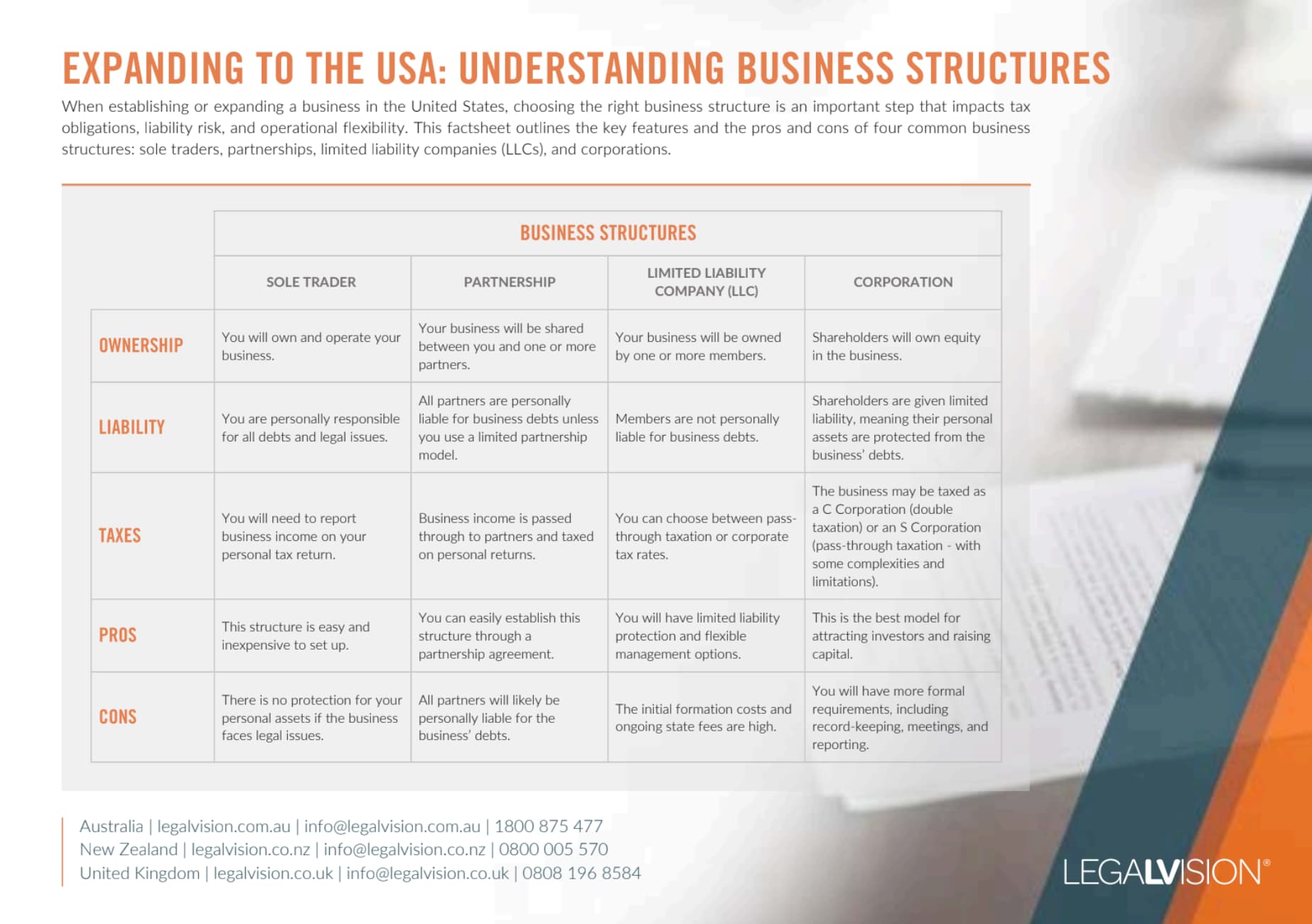In Short
- Australian businesses operating in the US must navigate complex employment laws that differ significantly from those in Australia, impacting hiring and workplace policies.
- Key considerations include understanding at-will employment, compliance with federal and state laws, and proper employee classification.
- Implementing thorough employment contracts and policies is essential to ensure legal conformity and minimise disputes.
Tips for Businesses
Adapt to US employment regulations by familiarising yourself with both federal and state laws. Focus on correctly classifying employees and understanding at-will employment’s implications. Develop comprehensive employment contracts and policies tailored for US operations to mitigate legal risks. Engage with legal experts to maintain compliance and address cross-border employment issues.
Hiring the right people can be fundamental to the success of your business. However, if your Australian business is considering an expansion into the United States, then it is essential to understand what your obligations are as an employer. This article explores the employment law framework in the United States.
Overview of the U.S. Employment Law Landscape
Unlike Australia, each state in the United States largely regulates its own employment law. While U.S. federal laws can set minimum standards nationwide, the laws of each state often provide additional protections and compliance obligations. Employers must comply with both, and where there is a conflict between federal and state law, employers should follow the law most favourable to the employee.
Key Federal Laws
For every employer in the United States, the following laws are generally applicable:
- Fair Labor Standards Act (FLSA): This law implements a number of protections for covered employees, including a federal minimum wage. An employee is likely to be protected under the FLSA if their employer has a turnover exceeding $500,000, or if they work for government agencies, hospitals, businesses providing medical or nursing care for residents, or schools and preschools. Employees who work across state boundaries may also be covered. This can be as simple as a factory worker making goods that will be sent outside the state;
- Title VII of the Civil Rights Act of 1964: This law protects employees and job applicants from discrimination on the basis of race, religion, national origin, colour, or sex (including gender, gender identity, pregnancy, and sexual orientation);
- Americans with Disabilities Act (ADA): This law prohibits discrimination against workers with disabilities. It requires employers to make reasonable accommodations for certain employees with disabilities;
- Age Discrimination in Employment Act of 1967: This law protects employees and job applicants over 40 from discrimination based on age;
- Equal Pay Act: This law requires men and women in the same position to receive equal pay for equal work;
- Family and Medical Leave Act (FMLA): This law allows eligible employees to take unpaid leave for the birth or adoption of a child, or if the employee or their spouse, child or parent suffers a serious illness. Employers of 50 or more employees are generally required to comply, and their obligations include providing up to 12 weeks of unpaid, job-protected leave, as well as displaying prescribed workplace posters and including prescribed information in their employee handbooks; and
- Occupational Safety and Health (OSH) Act: This law imposes a general duty on employers to provide a workplace free from recognised, serious hazards, and is regulated by the Occupational Safety and Health Administration (OSHA) or OSHA-approved state programs.
State Law Variations
At a state level, employers must be aware of their employment law obligations in each state that they hire in. For example, states may:
- set higher minimum wage rates than the federal minimum wage;
- impose restrictions or limitations around termination of employment;
- mandate paid sick leave or family leave;
- provide further anti-discrimination protections; or
- require employers to comply with workers’ compensation programs.
Hiring and Employment Practices
When looking to hire candidates, it is important to remember that you must not discriminate applicants on the basis of a protected characteristic. To reduce bias in the hiring process and ensure consistency, interviewers should structure interviews and ask all applicants the same questions. It is important that any questions asked do not force an employee to disclose information about a protected characteristic (for example, that they are pregnant, or that they have a same-sex partner).
Employment contracts in the United States are general ‘at-will’, meaning that either the employer or employee can terminate the relationship at any time for any lawful reason. Federal and state law generally prohibit an employer from terminating employment on protected grounds, including where it would be against public policy or the termination was in retaliation to a lawful act carried out by the employee.
Workplace Policies and Compliance Strategies
Employers in the United States should develop a comprehensive employee handbook that covers both federal and state requirements. Additionally, they should review these handbooks regularly to ensure they remain current. Having a clear and transparent handbook can help employers to guide employees who are underperforming, and assist in legal disputes.
It is also recommended that employers consider implementing the following workplace policies:
- anti-discrimination policy;
- anti-harassment policy;
- drug and alcohol policy;
- health and safety policy;
- leave policies (complying with the Family and Medical Leave Act where applicable);
- remote working policy; and
- technology and social media usage policy.
These policies should include clear reporting and investigation procedures, and employees and managers should receive regular training about their implementation.

This factsheet outlines the key features and the pros and cons of four common business structures: sole traders, partnerships, limited liability companies (LLCs), and corporations.
Key Takeaways
The fragmented nature of employment law in the United States can be difficult for businesses entering the market to navigate.
If you would like to understand your obligations as an employer in the United States, or require assistance in preparing your employment policies, our experienced U.S. legal support for australian businesses lawyers can assist. Call us today on 1300 544 755 or send an equiry.
Frequently Asked Questions
If your Australian business is expanding into the U.S., you will need to get familiar with a mix of federal and state employment laws. At the federal level, you will encounter laws like the Fair Labor Standards Act (FLSA) for wage rules, Title VII of the Civil Rights Act for anti-discrimination, and the Americans with Disabilities Act (ADA). Do not forget about the Age Discrimination in Employment Act and the Family and Medical Leave Act (FMLA) either. Each state has its own set of rules, often with unique minimum wage laws and leave requirements, so you have to navigate both federal and state guidelines, always choosing the one that most benefits your employees.
When setting up shop in the U.S., it is important to develop a solid employee handbook that ticks all the boxes for federal and state compliance. Consider including policies on anti-discrimination, anti-harassment, as well as rules about drug and alcohol use, health and safety, and leave. If remote working or technology usage comes into play, have clear guidelines for those too. Make sure these policies have clear reporting and investigation procedures, and keep your team in the loop with regular training. Periodically updating the handbook will keep everything relevant and help avoid any nasty surprises down the road.
We appreciate your feedback – your submission has been successfully received.












